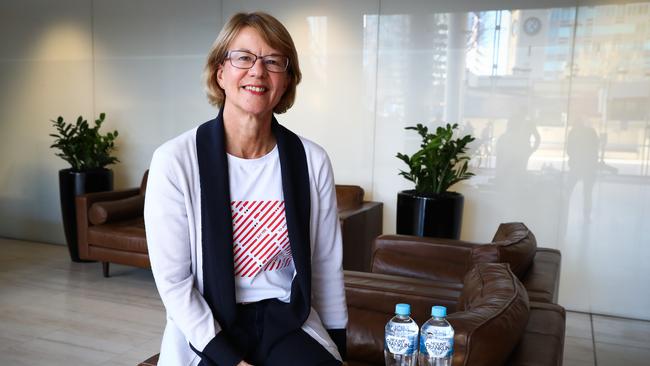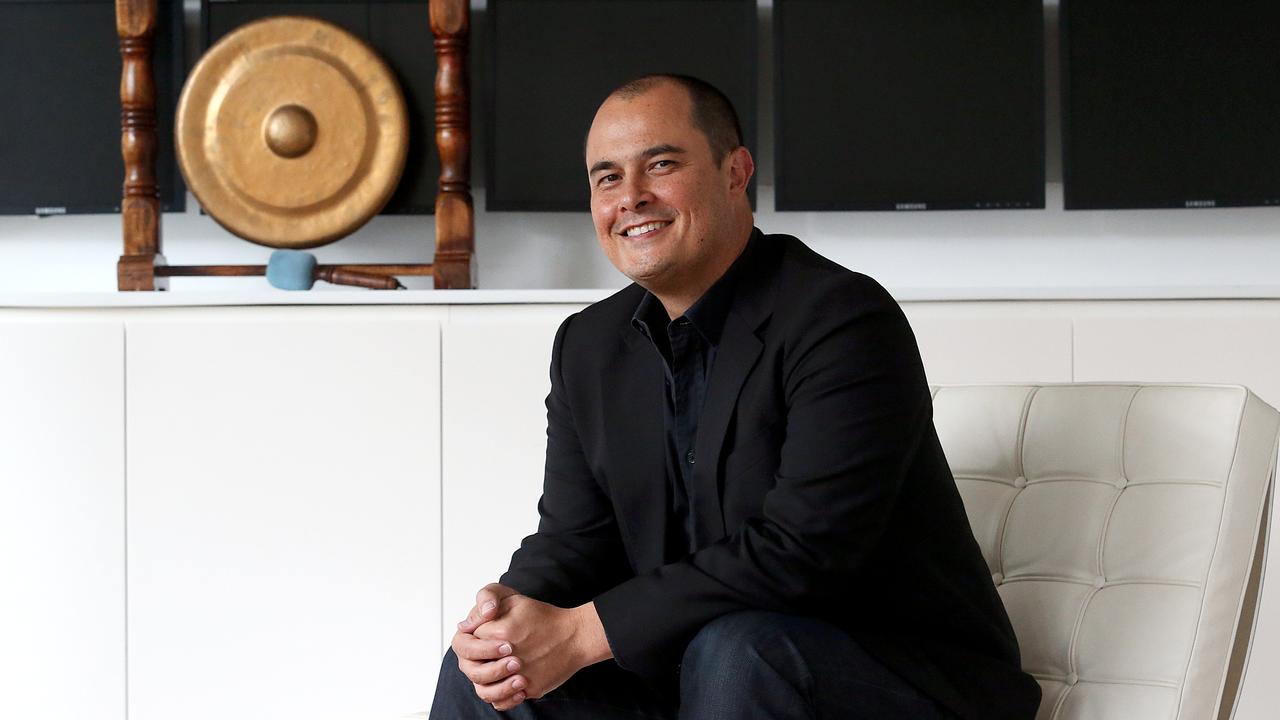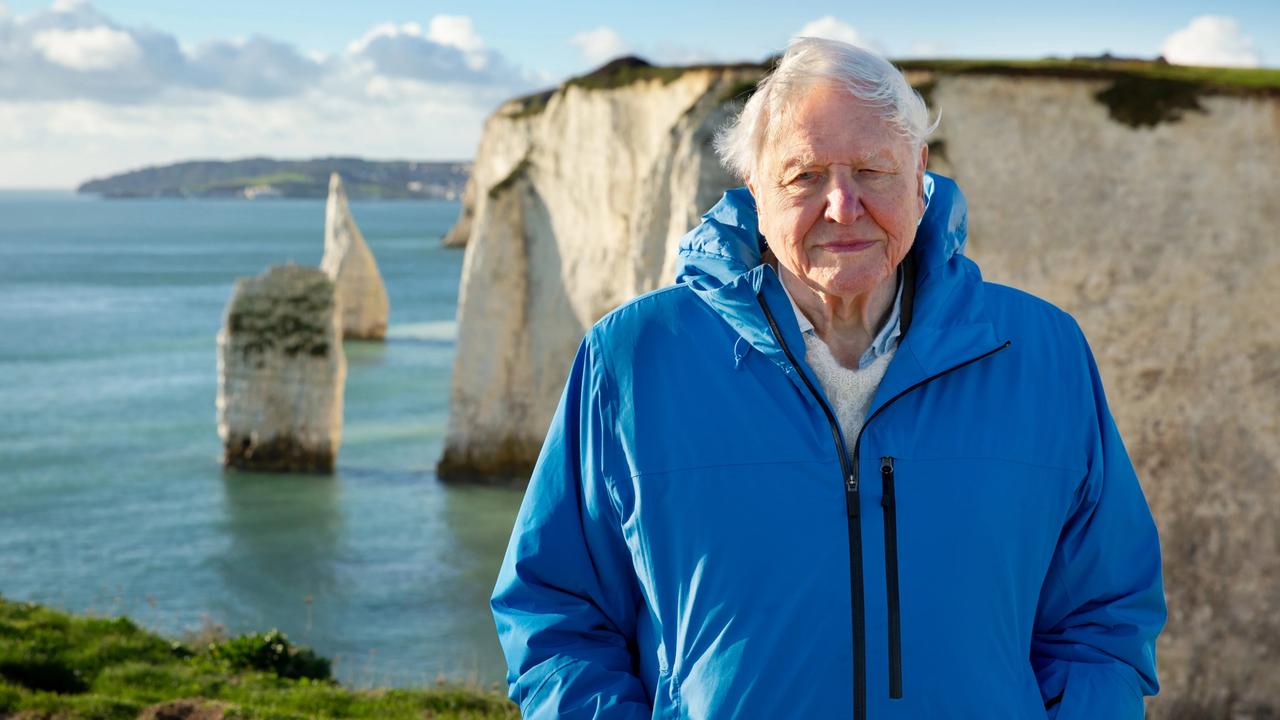Alison Watkins keeps faith at Coca-Cola Amatil
If Alison Watkins is feeling gloomy over the setbacks Coca-Cola Amatil has endured she is very good at hiding it.

If Alison Watkins is feeling gloomy over the horror run of setbacks Coca-Cola Amatil has endured recently she is very good at hiding it, with the local steward of the most iconic brand in the world setting a defiant tone in the face of fickle consumers and feisty retailers.
It’s a special kind of optimism, ingrained perhaps from decades of watching her beloved Richmond Football Club promise the world but end every AFL season in failure. Nevertheless as the ground shifts beneath her, Watkins has only a positive message to sell around the power of the Coca-Cola brands.
She trumpets the success of its recently launched Coke No Sugar and the opportunities in the fast-growing non-alcoholic beverage category, led by explosive growth in bottled water and in particular her key Mount Franklin brand. But both brands are now under attack amid changing consumer tastes and changing retailer strategies, and nursing wounds inflicted over the past four weeks.
In her only interview following the surprise news this week that her biggest customer, Woolworths, was stripping out at least three lines of the flagship Mount Franklin, Watkins tells The Weekend Australian she was personally disappointed by the supermarket’s recent actions.
But she maintains Woolworths, like all retailers, must ultimately answer to consumers.
“I really do believe Coles, Woolworths, our major customers, are driven by what the consumer wants and I believe that consumers will always want strong brands,’’ Watkins tells The Weekend Australian.
It’s the same when asked about Woolworths’ move last month to refuse to sell the Coke No Sugar brand, despite it being backed by millions of dollars in advertising — paid for by Coca-Cola — with Watkins perhaps subtly suggesting shoppers might be going elsewhere if they can’t find what they want on the shelf.
“We have been delighted with recent results (for Coke No Sugar) and really, what we are seeing is there has been a disproportionate uplift across all of our of other customers and channels and they are more than making up for it,” Watkins says.
“Yes, of course we are always disappointed if we are not successful in being able to persuade our customers to range our amazing brands and particularly when we are putting the amount of media support, you know it’s always disappointing, no doubt.
“We respect their (Woolworths’) decision and very much they will be driven by facts. And the facts will bear out consumer demand is there and I’m sure ultimately the facts will prevail.
“And I certainly would hope that for Woolworths, as for all of our customers, they are focused on making sure they have a range that meets the needs of consumers. From what we see in the take-up of Coke No Sugar it’s certainly something that is hitting the mark with consumers, as you know; I would hope Woolworths will reconsider their views on that.’’
What has been fascinating about this particular boilover between the bottler and supermarket is that Coca-Cola Amatil and Woolworths have a more enmeshed relationship than most suppliers and customers. The connections run deep between the executives on both sides.
Watkins is herself a former director of Woolworths and, like Woolworths chairman Gordon Cairns, is an alumni of McKinsey & Co. In 2015, CC Amatil, under its then new boss Watkins, poached Woolworths’ supermarkets finance director Martyn Roberts to be her new chief financial officer at the drinks group.
CC Amatil and Woolworths are also closely involved in a charity called the Avner Pancreatic Cancer Foundation, which coincidentally held a dinner on Wednesday night that was attended by many senior executives — including Woolworths boss Brad Banducci and CC Amatil’s Roberts.
The event raised more than $150,000 for the charity and by all accounts it was a fun and collegial night, despite the friction between CC Amatil and Woolworths that had just emerged days earlier.
Watkins was unable to attend the event and, despite her extensive contact book, is yet to personally contact the Woolworths chairman or CEO to have a chat about the supermarket’s decision to turn its back on No Sugar Coke.
Neither have they spoken on Woolworths’ decision to elbow three pack sizes of Mount Franklin bottled water lines out of the way to make room for private label waters.
“I always enjoy the opportunity to have a chat with Gordon, Brad as well, but it would be some months I would say (since we last spoke),” Watkins says.
“These processes of range reviews, there are always ins and outs, puts and takes and sometimes you win and sometimes you lose.’’
Woolworths will continue to stock Mount Franklin. It couldn’t do without it, given it is the market leader, with a share of about 40 per cent, in the $736 million Australian bottled water category. But from next month Woolworths will remove Mount Franklin’s 12-pack, four-pack and 1-litre varieties.
In the water aisle, the incursion of private labels is a challenge most other brands have been facing for years. This week’s shift away from Mount Franklin shows not even the biggest and most successful brand in the country is safe.
But Watkins argues the supermarket channel is heading in a direction where it actually makes sense for Woolworths, or any other retailer, to reconsider its line-up of bulk packaged bottled water.
“I think you need to step back and look at what’s happening, what has been happening in the water category over a period of years,” she says.
“And certainly the growth of private label has been a big phenomenon in grocery, and I think private label would now make up 60 per cent of share by volume in the water category overall.
“Water volume has grown by 50 per cent since 2014, so the volume of water being sold in supermarkets has exploded over the last three years and pretty much of all that has been private label water.
“What I can see from these refinements ... is Woolworths focusing the ranging on the bulk format packs. And that includes the 20-pack of Mount Franklin, which is our top seller, then the six-pack of Mount Franklin 500ml, so they are taking some of the single pack formats out of those centre aisles because that’s where the consumer is heading.
“This is what the consumer wants in the centre aisle. And we are actually very pleased at how the Mount Franklin brand is performing in Woolworths. We are up about 8 per cent year-to-date so we are not unhappy about reshaping of the range to where the consumer is going — that actually works pretty well for us as well.”
But she warns no one will be a winner if private labels dominate the supermarket shelves at the expense of powerful brands, and consumers feel a lack of choice.
“(There’s) plenty of scope for segmentation, and it’s certainly not in the retailer’s interest or the consumer’s interest to be able to buy only one kind of water, which is a particularly cheap water that nobody is making a lot of money out of.”





To join the conversation, please log in. Don't have an account? Register
Join the conversation, you are commenting as Logout